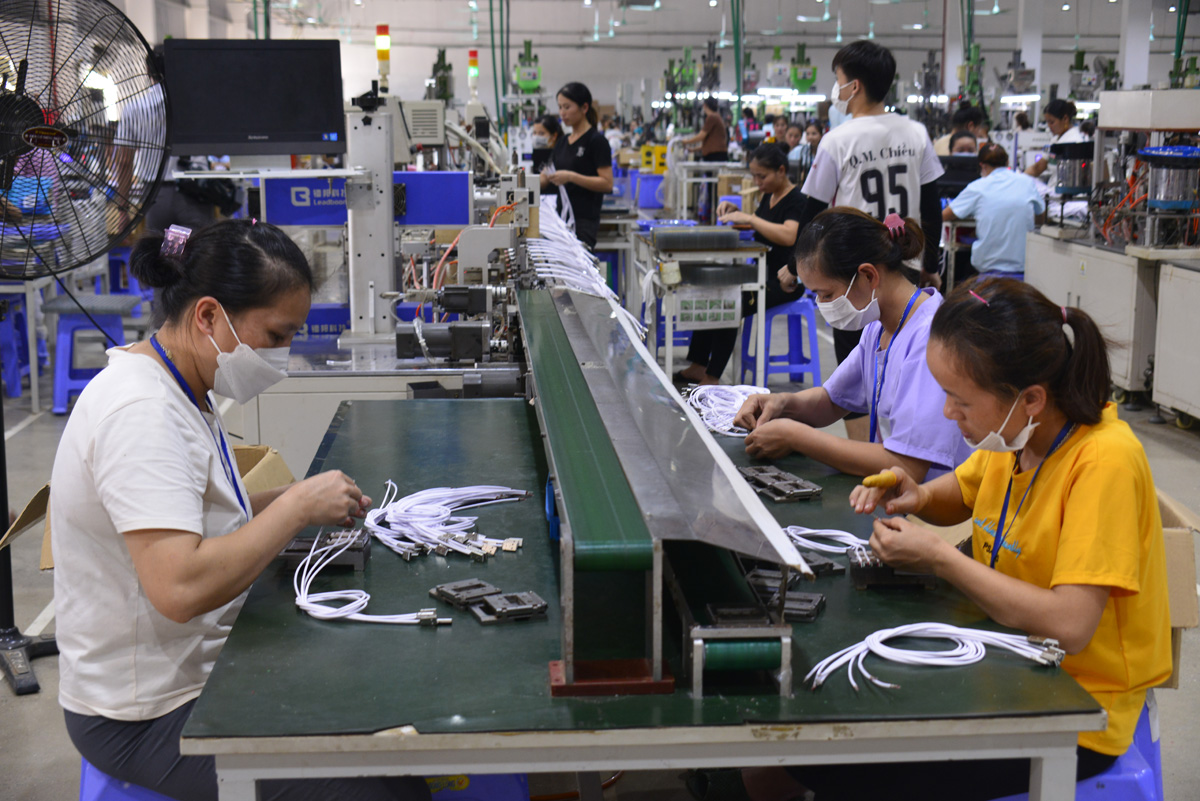
(HBO) - Lac Son is a large and densely populated district with not many favourable conditions for development. But over the past time, it has effectively applied the province's guidelines and orientations to its specific conditions. As a result, Lac Son has gained a lot of outstanding achievements in personnel work, land management and investment attraction.
Lac Son plastics factory creates jobs for about
1,000 local workers.
Lac Son is a poor district, ranking 6th out of
the 10 districts and city in terms of socio-economic indicators. The
urbanisation rate is only about 8.6%, with limited infrastructure. It has 120
micro- and small-sized businesses, of which 70 are active and have tax
declarations. Up to 90% of the population live in rural areas with difficult
conditions, and more than 20,000 labourers have to work far away.
Although the district is not a driving force of
the province, it has some potential and advantages in terms of land, natural
resources, workforce, and the rich culture of the Muong ethnic group. Lac Son
also owns Canh Tang lake - a large artificial facility in the northern region
with an area of 6 sq.km, which holds a great potential for the development of
various types of tourism.
After the district’s 27th Party Congress in
August 2020, the district Party Committee issued many resolutions on personnel
work, investment attraction, infrastructure and urban development, tourism, and
land management and site clearance, which were "bottlenecks” that needed to be
removed in order to get out of its poor district status and create development
breakthroughs.
Regarding investment attraction, the district
has rolled out a red carpet to lure more investors by accompanying and
supporting them in ground clearance and quick investment procedures in
accordance with regulations. To date, the district has attracted 31 investment projects,
including two foreign-invested ones with a combined registered capital of 11.27
trillion VND (475.3 million USD).
The district's state budget revenue has
increased continuously, from 47.4 billion VND in 2019 to 107 billion VND in
2020, and 142 billion VND in 2021. The figure is expected to hit 310 billion
VND this year./.
In Lac Thuy district, communes have been succeeded in promoting their One Commune-One Product (OCOP) products while others are still struggling to position their typical farming products in market. Some communes in the district still fail to have their products met OCOP programme’s requirements, while others have seen their certifications expired.
The inspectorate agency of Hoa Binh province has issued Official Dispatch No. 1090/TTr-PCTN to provincial departments, agencies, localities, business associations, enterprises, and investors regarding measures to improve informal component indexes of the Provincial Competitiveness Index (PCI).
Hoa Binh is taking concrete steps to improve its investment environment, with a strong focus on supporting businesses, settling obstacles for strategic investors, and creating opportunities for robust development in the coming years.
Under the blazing early summer sun, the construction site of Nhuan Trach Industrial Park (IP) in Luong Son district is abuzz with activities from dawn to dusk, a testament to the determination of the investor to meet their construction targets on schedule.



